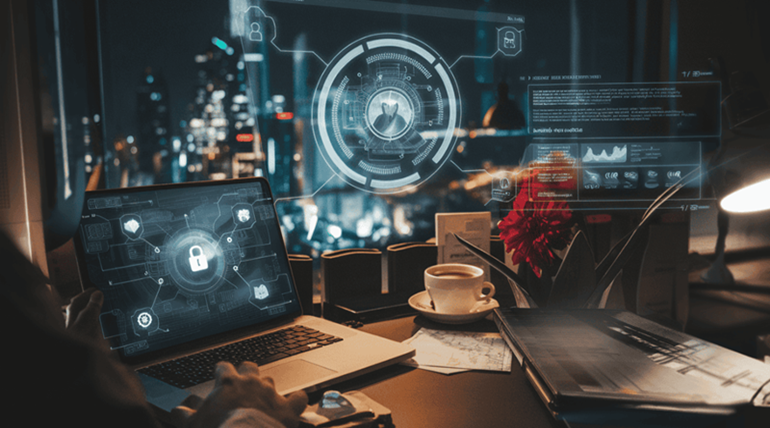10 Essential Cybersecurity Tips for Remote Workers

11 months ago
10 Essential Cybersecurity Tips for Remote Workers
Remote work has become a common practice in today’s digital world, offering flexibility and convenience to employees and businesses alike. However, with this shift comes an increased risk of cybersecurity threats. Cybercriminals often target remote workers, exploiting vulnerabilities in personal devices and unsecured networks.
To help protect yourself and your organization, here are ten essential cybersecurity tips every remote worker should follow.
1. Use a Secure Internet Connection
Avoid connecting to public Wi-Fi networks, as they are often unencrypted and vulnerable to attacks. If you must use public Wi-Fi, ensure you connect through a Virtual Private Network (VPN) to encrypt your internet traffic and safeguard sensitive information.
2. Keep Your Devices Updated
Regularly update your operating system, software, and applications to patch security vulnerabilities. Enable automatic updates to ensure you don’t miss any critical patches. Cybercriminals often exploit outdated software to gain unauthorized access to systems.
3. Use Strong and Unique Passwords
Weak or reused passwords are a common entry point for hackers. Create strong passwords that include a combination of letters, numbers, and special characters. Use a password manager to securely generate and store unique passwords for each account.
4. Enable Multi-Factor Authentication (MFA)
Multi-factor authentication adds an extra layer of security by requiring additional verification (such as a one-time code sent to your phone) beyond your password. Enable MFA wherever possible, especially for work-related accounts and sensitive information.
5. Be Cautious of Phishing Attacks
Phishing emails are a popular method used by cybercriminals to steal sensitive information. Look out for suspicious emails, particularly those urging immediate action or containing unfamiliar links or attachments. Always verify the sender’s identity before clicking on any links or providing information.
6. Secure Your Home Network
Ensure your home Wi-Fi network is secure by changing the default administrator credentials and enabling WPA3 or WPA2 encryption. Use a strong, unique password for your Wi-Fi network and consider segmenting your work devices on a separate network from personal devices.
7. Back Up Your Data Regularly
Regularly back up your work data to a secure cloud storage service or external drive. In the event of a cyberattack, such as ransomware, having a backup ensures you can recover important files without paying a ransom.
8. Avoid Using Personal Devices for Work
Whenever possible, use company-issued devices for work-related tasks. These devices are typically equipped with enterprise-level security tools and configurations. If you must use a personal device, ensure it has adequate security measures, such as antivirus software and firewalls.
9. Log Out of Accounts When Not in Use
Leaving accounts logged in can expose you to unauthorized access, especially if your device is lost or stolen. Always log out of work accounts when you’re done, and use a secure screen lock to prevent unauthorized access to your device.
10. Educate Yourself About Cybersecurity Best Practices
Stay informed about the latest cybersecurity threats and best practices. Participate in training sessions provided by your organization, and familiarize yourself with company policies on data protection and incident reporting. Awareness is your first line of defense against cyber threats.
Bonus Tip: Report Incidents Immediately
If you suspect a cybersecurity breach or notice unusual activity, report it to your IT department or security team immediately. Prompt reporting can help mitigate damage and prevent further incidents.
Conclusion
As remote work continues to grow, so does the need for robust cybersecurity practices. By following these ten tips, remote workers can significantly reduce their risk of falling victim to cyber threats and protect both personal and company data.
Cybersecurity is everyone’s responsibility. Stay vigilant, adopt secure habits, and work proactively to safeguard your digital workspace.
©everlastcyber™





0 Comment